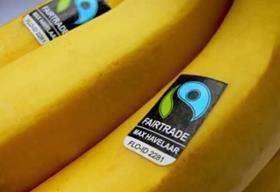
MPs have joined consumer efforts to urge Sainsbury’s to reconsider launching a new Fairly Traded tea range instead of using the official Fairtrade certification.
The move sparked concern with Fairtrade Foundation, as well as other NGOs such as Oxfam, which said the new tea sourcing programme did not meet core principles of producer empowerment – claims that Sainsbury’s has refuted.
It has also led to speculation that the retailer may seek to expand its Fairly Traded range to other commodities, such as bananas.
A parliamentary motion sponsored by Green Party co-leader Caroline Lucas and signed by 45 MPs said that “this House deeply regrets the decision by the supermarket Sainsbury's to drop the Fairtrade mark for its own-brand tea and develop its own certification scheme.”
It made the following notes:
- The Fairtrade Foundation is a respected organisation and part of a global network that strives to ensure that farmers and workers in developing countries get a better deal for their produce
- In 2015, the UK Fairtrade market was worth an estimated £1.6 billion in retail sales, generating an estimated £29.8 million in Fairtrade premium, a communal fund for workers and farmers to use, as they see fit, to improve their social, economic and environmental conditions
- The Fairtrade Foundation has a proven track record over 25 years of making a real and significant difference to the lives of farmers and workers
The MPs said they “urge other supermarkets to remain with and strengthen their commitment to Fairtrade certification.”
A petition on change.org currently has almost consumer 90,000 signatures and states that: “‘Fairly Traded’ sounds a lot like Fairtrade, but it doesn’t have the same gold standards.”



